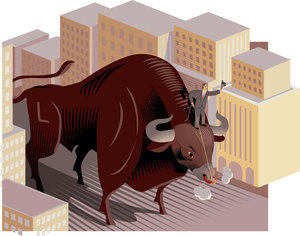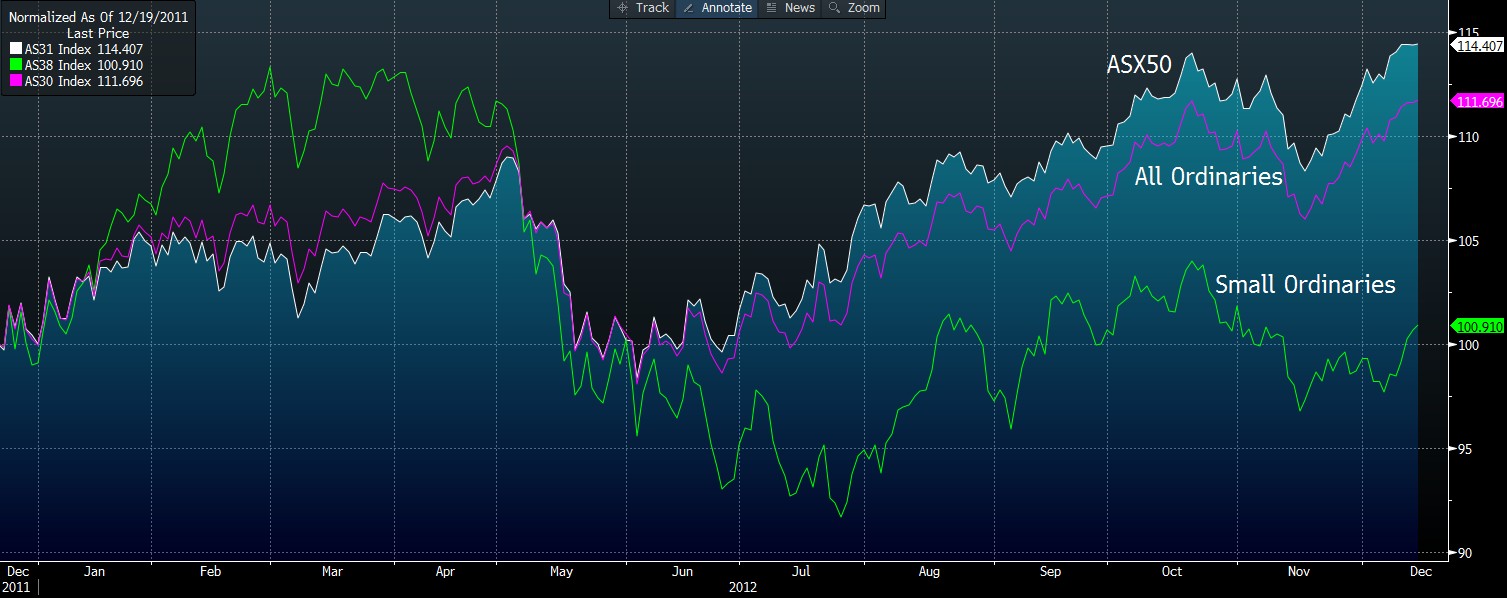
Are Large Caps Becoming Expensive?
We have the luxury of a broad mandate in the Montgomery Fund. We are not tied to small caps or large caps, but can allocate capital to the best opportunities we find, wherever they may be.
Recently, we have found better value at the smaller end of the market, and the chart below may help explain why.
What it shows is that, since the early part of 2012, the small ordinaries index has significantly underperformed the all ordinaries index, which in turn has underperformed the top 50 index. In other words, investment capital appears to have been flowing into larger companies but not into smaller ones.
There are many possible explanations for this, and it is wise not to read too much into this type of analysis. Having said that, it looks to us as though sustained low interest rates may be starting to move reluctant investors to again take on some investment risk, and this process is being felt first in the larger listed companies, where people naturally feel more comfortable. Anecdotally, we have also been hearing investors say that they now feel the need to do something more than sit with their capital on the sidelines.
That does not mean that large companies are necessarily expensive, but it does tie in with our observation that the smaller end of the market may be where the best opportunities currently reside. Also, when investor confidence and risk appetite do return in force, smaller companies with strong growth rates will be among the main beneficiaries.

I accept valuation of a company’s intrinsic value based on earnings, growth etc but there is obviously a correlation to current interest rates which “no analyst or salesman” seems to mention ie telstra does not have the same “value” if term deposit rates are 3% or 18% as evidenced by it’s current run up. Who would invest in telstra if they could get an equivalent or better return in a term deposit. One can not say telstra has an intrinsic value of $3.00 “period.” If rates continue to drop or rise, telstra (or any other dividend stock) will do the same. All valuations must consider current rates and their potential in either direction or render any vauation flawed.
I agree with Roger.It is hard to find a realistically priced business in the large caps. BHP and Rio are cutting back on their capital spending,which will probably be good for their shareholders.They might even pay higher dividends!I am searching through the small caps at the moment searching for some good businesses at realistic prices.I think there may be a few.
Looking forward to hearing what you uncover!
I suspect that it is the chase for yield that is seeing money flow into Telstra and the four banks. These are all large caps.
So are we coming to to a greed cycle, (when people a greedy be scared) or am I too early in my thinking I have noticed that in the money mag and others that the experts are telling people its time to come out of cash and start investing because they have seen some good returns
After a 14% increase you wonder if they are six months too late. Of course if its the start of a new bull market (and we aren’t particularly good at predicting these things) it could go on for a few years.